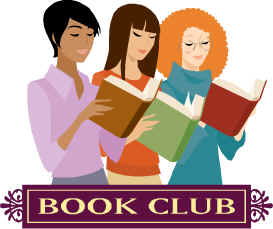
Hannibal Free Public Library
Fates and Traitors
by
Jennifer Chiaverini
January 21,
2019
2:30 – 4:00
p.m.
|
|
Hannibal Free Public Library Fates and Traitors
by
January 21,
2019 |
Discussion Questions
1.)What do you think of the author’s choice to begin the story with John
Wilkes Booth’s death and end it with Lucy’s point of view? Did this
authorial choice make the assassin’s story more poignant for you?
2.) What do you think of Junius’s
unconventional views on marriage as “lifelong enslavement” and an “iron yoke
that crushes all who submit to it”? How does this compare to his
abolitionist views?
3.) When Junius decides to elope to America
with MaryAnn, he tells her that “Americans are individualists ,tolerant and
free-thinking. They wouldn’t care.” How has this view of Americans withstood
the test of time?
4.) While Junius spirals into alcoholism,
Mary Ann feels she might “burst from the strain of repressing her anger and
disappointment. . . . She would not become a shrew, complaining and
criticizing . . . Their home must remain his safe haven, free of judgment
and recriminations, or he might grow despondent and decide not to return to
it.” Discuss the roles of wives during the early nineteenth century.
5.) Why do you think Mary Ann destroys
Junius’s letters? What about them makes her want to destroy these personal
relics from her husband’s past?
6.) John is heavily inspired by his father’s
writings that “fame and glory are marvelous prizes.” How does John change
after the death of his father, the strongest advocate of abolitionism he had
known, while he became a Confederate sympathizer? Was there always a
potential for John to follow the path he chose, or would things have been
different had his father, and his influence, not died prematurely?
7.) Introverted and meek Edwin becomes a
legendary stage actor by accident whereas Booth eagerly strives to become
one. Booth also often finds himself overshadowed and at odds with Edwin.
Compare and contrast the two brothers, their personalities, acting careers,
and political beliefs.
8.) Booth is strongly against Asia’s
marrying Clarke. Why do you think he was so protective of his younger
sister? Do you think his misgivings were later found to be true? Why or why
not?
9.) What other options did Asia have aside
from marrying Clarke? Discuss the role of young women in society during the
mid-nineteenth century society
10.) Booth sympathized with the character of Brutus from Julius Caesar.
How do you think Booth’s love of theater and drama influenced, if at all,
his decision to assassinate Lincoln?
11.) Compare and contrast the lives and
hardships of widows Mary Ann Booth and Mary Surratt an
Adapted from: https://www.penguinrandomhouse.com/books/314683/ fates-and-traitors-by-jennifer-chiaverini/9781101983843/readers-guide/